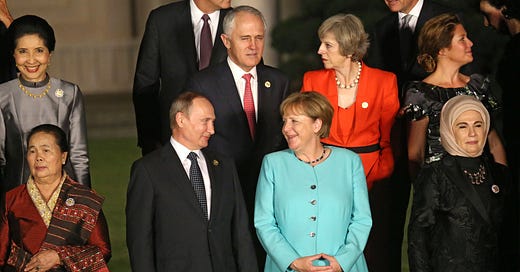Germany’s Quiet „Defiance”: How Europe’s New Sanctions on Russia Will Once Again Fall Short
A new EU sanctions package will falter under Berlin’s support for Russian interests.
The European Union agreed on yet another round of sanctions against the Russian Federation—its 15th package since the onset of Moscow’s full-scale invasion of Ukraine. By this point, these measures have become a familiar refrain. The EU announces a new tranche of penalties, targets specific individuals, entities, and vessels involved in circumventing old sanctions, and trumpets them as a step toward weakening the Kremlin’s war machine. Yet as recent analyses have illustrated, this approach often proves to be all bark and little bite.
The unfortunate truth, as sources like Edward Lucas writing for the Center for European Policy Analysis (CEPA) and reporting from the Kyiv Post have highlighted, is that the EU’s sanctions are systematically undercut by key internal players—chief among them, Germany. Far from the narrative of a strong, united Europe determined to hold Russia accountable, what emerges is a picture of haphazard measures that are, at best, half-hearted and easily circumvented. German economic interests and political hesitancy have repeatedly enabled Russia’s regime to continue reaping profit from European markets. In turn, this weakens the efficacy of Europe’s collective stance and perpetuates the very aggression these sanctions seek to curb.
Keep reading with a 7-day free trial
Subscribe to Rock Rachon to keep reading this post and get 7 days of free access to the full post archives.





